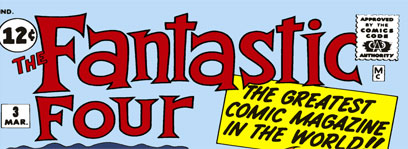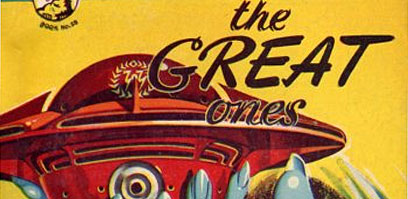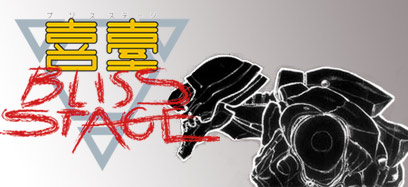I’m willing to explode my blog’s borders for this piece of beauty.
These guys live right here. The field they’re in is probably the one down the street where baloons take off. I think I might have to go talk with them.
I’m willing to explode my blog’s borders for this piece of beauty.
These guys live right here. The field they’re in is probably the one down the street where baloons take off. I think I might have to go talk with them.

I’m not good at keeping my mouth shut, but I win a brownie for this one. Over the last 8 months or so while people were telling me about the unclear parts of Shock:, I was quietly listening and writing a new edition with the extraordinary editorial help of Ben Lehman and Cauley Greene. The new edition is version 1.1 and has gone off to press, so now I can tell people about it.
The new version directly addresses the stuff that was missing or unclear before, integrates the various hacks and recommendations that Matthjis Holter assembled, squishes some strange typos and grammatical choices, and tweaks a number here and there to make the game work a little better.
If you submitted a head for bounty, you can either pick your copy up at Gen Con (assuming no printing disasters) or I’ll ship it to you after the con. Likewise, the four reviewers during Sci Fi Week at RPGnet will each get a copy in thanks for their reviews, as promised.
If you want to get yourself a copy ASAP, you can order Shock: 1.0 from my site now (or Indie Press Revolution, of course) and you’ll get not only a copy of 1.0, but a signed copy of 1.1 when it’s off the press. You’ll be able to pick it up from me at Gen Con or I’ll ship it to you.
The price of the book will be going up once this promotion is done, so get your copy before that happens!
Enjoy the Future!

Sci-Fi Week at RPG.net was fantastic. There were four reviews of Shock: and, if you haven’t seen them, here they are.
Thanks, reviewers!

Somehow, I missed this when it first went up: The Forager Blog: Ron on Sci-Fi, Sean on Sci-Fi. This article is written by Jon Hastings, a player of Shock: and interesting guy. In it, he talks about my definition of science fiction (which, instead of writing in prose, I wrote as a game) and Ron Edwards’ take on it. Lemme quote Ron because he says some really nice things:
Anyway, to someone whose thinking inclines in the above direction, Joshua A. C. Newman is bucking for hero status. He is the only person with the guts to tackle this issue in RPG terms…Shock is a first, a de novo, an innovation. But more than merely an innovation, it’s not only what I wanted, but what I needed. In this day and age, I am not going to get science fiction consistently anywhere else. The person typing this post is Shock’s target audience.
… that is, Ron and I see this exactly the same way.
Now, I love SF short stories. Naturally, I have a great fondness for those read in my youth. Some authors really felt like they were talking to me. Bruce Sterling was one of them; he’d always thought about the same things I’d thought about and thought about them further. Ron, though, is ten years or so older than I (though you wouldn’t know it to look at him), so it comes as no surprise that he pegs optimal sci fi about ten years earlier than I do.
And that’s great. Because Shock: is for making your science fiction. It doesn’t reproduce science fiction. It’s a tool for making your own with your own aesthetics and your own moral connundra. It is not the product of scholarly study of science fiction; rather, it’s a technique I developed to make science fiction. I’m a designer, not a writer (a fact noted by so many), so I designed a science fiction system so I could tell the stories I wanted to tell.
This last point here came from a discussion I had with someone on RPGnet. In it, he asked me if I’d read his favorite couple of authors. I hadn’t. Later, he told someone else, when asked about Shock: that “the author doesn’t seem to know as much as he thinks he does.” Another person expressed concern that my sources listed were all “older” authors (Bruce Sterling is an old author! That makes me feel old!) That baffled me: one’s ability to build fiction is not based on how much other fiction one has read, it’s based on the number of stories told. I wrote Shock: so that those stories could have a structure — one that I recognize in the stories I like and one that I think works very, very well — and you can bring your aesthetic and moral machinery to the table and enjoy the process of creation.
Shock: is for your stories. Build what you want to build.

It looks like Brickshelf is down, and maybe for good. The lone page on the site reads, “Brickshelf has discontinued operation. We apologize for any inconvenience.”. It’s very sad. If anyone knows anything (Soren, I’m looking in your direction!) I’d like to know what’s going on. That place was (is?) a huge benefit to Lego builders. Other site like MOCPages rely on it and it’s a central repository for thousands upon thousands of lovingly created Lego things.
It’s gotta be a thankless task running such a site and I hope that, if this is permanent, it was an “I have to do something else now” thing, rather than losing patience.

A close friend of mine used to work at Electronic Arts as an animator. He left for the usual reasons people leave EA: overwork, underpay, and cattle-like treatment. One of the eyerollers, though, was when he told me, “Our project manager sat down with us and said, ‘Play a lot of Half Life. Because we want this game to be exactly like that.”
So I’m inclined to flashback eyerolling when John Riccitiello, CEO of that (very successful) company complains that “We’re boring people to death.”
He thinks the problem is that games are hard and that you’re supposed to be a hardcore gamer to even play. I think that’s only part of the problem, and Nintendo may have cracked that with the Wii (though I’m not seeing the kind of innovation I’d like, it may be because I don’t own one). I think the other problem is that the focus is on licensing and polygons, not, you know, the game. Games are games: they engage certain parts of your consciousness
in a way that doesn’t hurt you. That is, telling stories is fun because you get to experience something without having to take the hit from it; you get to evolve emotionally without having to go through what the characters went through. Or you get to build and try a giant robot without having to invest the millions to make it work. Or you get to fight a war with all the fun shooting and yelling but none of the horrible dying and sadness. Or you get to solve curious puzzles without your personal finances being on the line. Or you get to fly around in an X-Wing because it’s awesome, but you can’t do it in real life.
These things are fun to do! I don’t want to invest $1000 so that I can then slog through a bunch of stuff to get to the fun parts. I don’t want to get hosed online by a 15 year old who plays every day after school. I want to engage these parts of my consciousness.
Now, it’s mentioned sort of weirdly in the article I linked above, but I want to say this clearly: this is, and has been for years, a priority of Nintendo’s. They understand games very well. I have a GameCube and it gets a lot more play than my PlayStation because the games are better. I think EA’s complaint may just be a dying breath, though. Maybe, just maybe, something interesting will happen to make game play the center of attention again. I really want to see a video game revolution like that we’re seeing in fiction games and RPGs: people with clever ideas making clever things that bring people joy without requiring a huge audience and budget.

Jono DiCarlo, the owner of one of the most interesting jobs in the world just wrote a review of Shock: for RPG.net’s Sci-Fi week and reposted it over on his blog.
Synopsis: he loves it. From the review:
My closing thought is this: because a game of Shock is built around real-world issues that you care about, your game is going to be a little deeper than just entertainment — it’s going to be a story that’s about something… In Shock, I think we might finally have an RPG that does what the best written SF does — help us learn to cope with the rapid social and technological changes occurring in the modern world.
He mentions the confusing text in his review, of course. Another reviewer said that he wished that he’d seen the Compilation of Tips, Clarifications, and Explanations put up by intrepid Shocker Mattijs Holter, so I offer it here for anyone who may need it.
Ben’s got a blog quiz, “Which Bliss Stage Pilot Are You?”, set up! He says I’m boring (and, by extension, Brennan and lots of other “grownups”) because of the result:
Personality:You don’t know it, but everyone looks up to you, not only for your bravery, but for the decency with which you treat others. But since you mostly stay within a small group of friends, you don’t realize the esteem that they hold you in.
Advice: Be careful! You try to do everything for everyone, and you’re about to burn-out. No matter how hard you try, you can’t save the world by yourself, and you’re doing no one any favors by pushing yourself hard all day every day. You have a good heart, and that’s important, but remember that not everyone is as generous as you.

Ben Lehman, the creator of Polaris, Chivalric Tragedy at Utmost North has started taking pre-orders on his newest game, Bliss Stage. It’s a game of teenage love, giant robots, and a total lack of adult supervision.
(Logo by yours truly.)

Over at RPG.net, there’s a goodie a-cookin’ for science fiction game fans, Sci-Fi Review Week.
This is the part where you come in. Have you played Shock:? Do you have something to say about the experience? Awesome! Do so! Have you not played Shock: but are curious about it and want to write a review of the text? Sweet! I’m here to facilitate that.
I’m here to facilitate that in a particular way, actually. Shock: hasn’t been available in PDF form (except to one guy who asked nicely when he bought the book) until now. Email me for a review PDF and I’ll happily send one along with the understanding that you will write a review of it for publication during Sc-Fi Review Week.
As with the error bounty, those who review Shock: will be at the top of the list for the next version of Shock: when it’s released.
Chris, the guy organizing the thing, has written a little article about how to write a review. What he recommends is great. I look forward to reading what you’ve got to say!